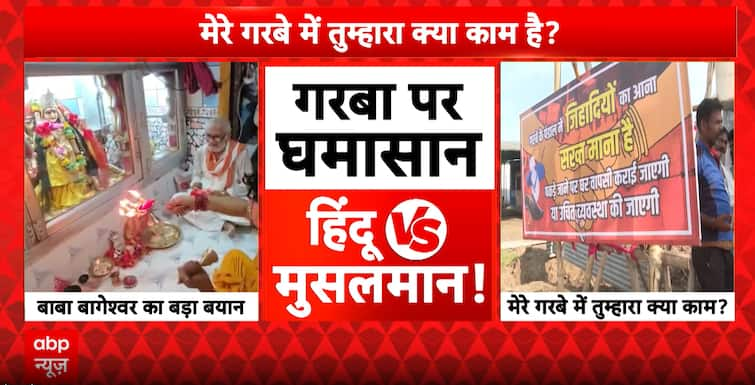Navratri 2025 has once again become the center of religious and political controversy. Bageshwar Dham’s Dhirendra Shastri stirred debate by declaring that if Hindus do not go for Hajj, Muslims should not enter Garba pandals. He further suggested that gaumutra should be kept at the entrance of Garba venues, symbolically demanding purification before entry. His remarks have been amplified by the Vishwa Hindu Parishad (VHP), which has issued advisories in Maharashtra, Madhya Pradesh, and Rajasthan to restrict non-Hindu participation in Garba celebrations.This year, similar disputes are unfolding across multiple states. In Delhi and Haryana, BJP leaders have pushed for meat shops to remain closed during Navratri, sparking resistance from traders. Many argue that such restrictions are less about devotion and more about polarizing voters. Critics highlight the irony that despite bans, surveys suggest a large section of Hindus themselves consume non-vegetarian food during Navratri.The row has also extended to moral policing on clothing, with calls for women to dress in “traditional attire” during Garba. Social commentators emphasize that the Constitution guarantees freedom of food, clothing, and faith, urging political leaders not to dictate personal choices. Yet, year after year, Navratri celebrations remain overshadowed by divisive rhetoric.



